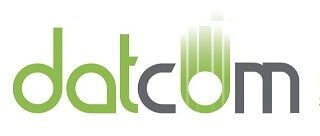Data Processing Automation (DPA) is transforming office work across every industry. Adoption has been highest among financial institutions such as banks and accounting firms, but Law offices have been slower to embrace it.
Despite general approval by legal industry thought leaders, many law offices have yet to invest in process automation. One reason maybe that it simply isn’t top of mind. With so much work to do, strict deadlines, and compliance changes, it can be difficult to focus on retooling.
But that’s exactly why legal professionals should investigate business automation.

What is Data Processing Automation?
DPA is a form of business automation that is a large part of the move towards digital transformation. It’s a form of custom software used to streamline repetitive tasks such as data entry and extraction. These two elements are time-consuming when performed by legal assistants and attorneys and make up a large part of the mundane work in a law office. And that’s just a basic application of the technology.
Many software services already have automations and integrations built in, but DPA is a whole other framework around every piece of software or web service that legal professionals use. Using a computer like a person would, DPA software doesn’t depend on developers making their software compatible with other applications. Rather, it is customized to fit a firm’s systems and processes.
Advantages
Speed and precision are foremost among the benefits of DPA for legal professionals. When deadlines are fast approaching, DPA agents work around the clock 471 times faster than human assistants and never make mistakes. The time savings is a true game-changer.
Another advantage is that it frees legal professionals to focus on more client-facing work. Legal clients are often feeling overwhelmed and distraught over their legal problems. With more opportunities to work directly with their clients, legal professionals can add an extra personal touch to their services.
Finally, DPA development is an iterative process that continuously improves with development. As more and more processes are automated, legal professionals and their assistants can take on more clients and increase their earnings.
Uses
Law offices can utilize DPA to automatically perform tasks such as:
- Create templated contract drafts
- Compile legal citations
- Organize compliance and regulation changes
- Process information
- Collaborate with external legal services
Implementation
DPA service providers aren’t all the same. They use different tools and offer different pricing models. Some choose to charge for implementation and upkeep separately. Others seek a portion of the money saved by their automations. Some providers opt for a hybrid approach where they charge an implementation fee and then take a smaller percentage of the revenue.
At DatCom, we do all our own discovery work and won’t charge clients upfront. We think of our clients as sustainable business partners!
And DPA is just one of 3 services focused on business efficiency.


